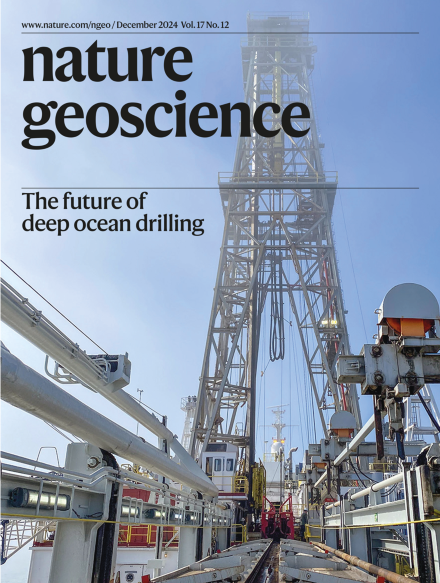
Read our December issue
Featuring a special Focus on ocean drilling, plus research on porphyry copper formation, Antarctic ice-shelf collapse, and carbon sequestration on Mars
Content-Length: 262435 | pFad | http://www.nature.com/ngeo/
ma=86400
Featuring a special Focus on ocean drilling, plus research on porphyry copper formation, Antarctic ice-shelf collapse, and carbon sequestration on Mars


This study examines the influence of agricultural irrigation on heat stress and contrasts it against local impacts of urbanization in North American cities using regional climate model simulations. The results indicate that irrigation decreases air temperature and increases relative humidity, with daytime urban moist heat stress reduced according to most indices.

Fetched URL: http://www.nature.com/ngeo/
Alternative Proxies: